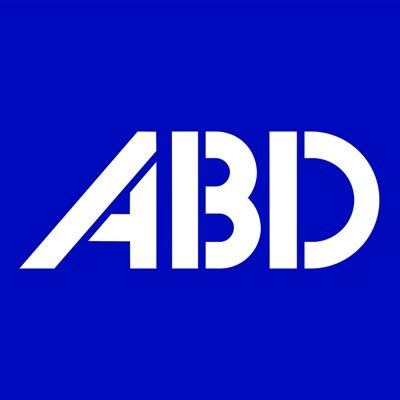Founded in 1992 The Alliance of British Drivers is a not-for-profit organisation that is owned and controlled by its members. They promote the views of drivers to national and local Government bodies and provide information to the public. They also try to counter the misinformation spread by many people on the use of private vehicles and promote freedom of choice about how you travel.
We spoke with one of their Directors Ian Taylor.

“One of the successes we contributed to was the defeat of the road pricing plans in the first decade of the century, one of our members organised the No.10 petition against it, and the huge response caused the government to step back”
Can you tell us a bit about The Alliance of British Drivers, and the organisations aims?
Originally set up as a member association, The Association of British Drivers, by founding chairman Brian Gregory, was concerned about the growing use of speed cameras, reduced speed limits everywhere and lack of concern for encouraging good, skilled driving. It became a not-for-profit limited company (Pro Motor Ltd) for the protection of members. Control rests with a board of directors but being a membership based organisation there is still a national committee too (everyone does not want to be a director).
One of the successes we contributed to was the defeat of the road pricing plans in the first decade of the century, one of our members organised the No.10 petition against it, and the huge response caused the government to step back. Following that, the organiser founded his own campaign, the Driver’s Alliance, but the funding was limited, so in 2012 a merger was agreed, the ABD retained it’s initials and logo, but became The Alliance of British Drivers. It remains predominantly a member based campaign, while seeking additional funding methods. It is also non-partisan. With the exception of a couple of specialist functions like magazine editor, and membership secretary, it is run by unpaid volunteers, with some activities outsourced when affordable.
Of late, it has, not least because of the people who attack us and how they operate, expanded beyond purely driving issues into the wider debates around environment and climate – which in any case directly affect drivers. This has been accomplished by working in close co-operation with partners (including FairFuelUK and the Motorcycle Action Group) under “umbrella organisation” – Transport Reality, the primary aim of which is to get the 2030/35 internal combustion engine bans postponed or overturned. The ABD is dedicated to presenting factual, scientifically provable information based on data, by any means possible, to central and local government, the media, and the public at large.
“Our view is that exaggerated health and environmental “threats” are being used by those in power with a self-confessed long-standing car hatred”
In Croydon the proposed expansion of ULEZ is a major issue facing drives, what’s the Alliance’s views on ULEZ?
This is part of wider moves being made across Greater London, and their adoption by other cities. Our view is that exaggerated health and environmental “threats” are being used by those in power with a self-confessed long-standing car hatred, gradually bring about the exclusion of most private vehicles from cities. This represents both a severe economic threat to the viability of those cities and a serious move against freedom of personal movement and transport – regarded by many as a “right”, although nobody denies some transport management required to prevent gridlock. The ULEZ in London doubles up as a money grab by the Mayor.
“The biggest challenge faced is the growing trend to impose ever more restrictions and costs that threaten the freedom to drive.”
What works well for drivers and what are the wider challenges you see in the UK?
As mentioned above, nobody wants gridlock or really bad air (which it in fact rarely is, and when it happens is often the result of anti-traffic measures that create congestion). The situation is different in London and a few other big city situations to the rest of the country. First of all, they have better public transport alternatives. Everyone doesn’t drive, so being pro-driver shouldn’t mean being anti the alternatives – not even the cyclists, though they don’t always make it easy to like them. Transport choices are important – but must include the people’s choice by a long way for decades – the motor car. However, decisions about transport expenditure are seriously out of kilter with that choice, funds for roads are a fraction of what drivers pay to use our roads via VED, fuel tax, etc., with the money going to just about anything else – including anti-car measures. Out in the country, there is less scope for some of those alternatives, also less need on congestion grounds. The biggest challenge faced is the growing trend to impose ever more restrictions and costs that threaten the freedom to drive. There is a genuine debate to be had on the effect of more electric vehicles not paying fuel duty.
We meet you at the Freedom Festival and mentioned being involved with or a member of the TaxPayers’ Alliance, The Freedom Association, and the Free Speech Union among others. How did you get so involved in politics and what are the burning issues you care about?
All those other organisations: it didn’t happen overnight, and I don’t hold official positions as I do in the ABD. Back in the day I did run a local branch of the NO2ID campaign, which has also “introduced ” me to Big Brother Watch, and don’t forget the Global Warming Policy Foundation. Many years ago I was a Young Conservative, but became very disillusioned with the operation of political parties, and have not been a member of one for decades now, preferring to express via non-partisan organisations – which has been described as political pick’n’mix. I was until recently The ABD’s Chairman, but while remaining active, am starting to “wind down” as I approach my 75th.
How can our readers get involved with the Alliance and follow driving issues more generally?
Involvement: well, that’s up to individuals. New members always welcome, however active or inactive they choose to be. So please go to the website and join us. We also have a presence on Facebook and two Twitter accounts (ABDcampaign and The ABD, as well as some local ones run by members), so we can be followed, liked and retweeted or friended.
Ian can also be found on Twitter at https://twitter.com/IanTaylorDover.


